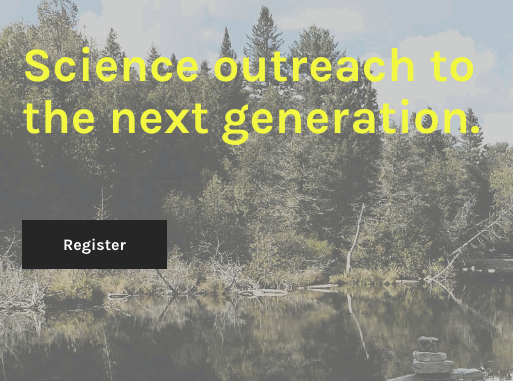
Conference2Classroom is a new initiative by Rachel Kuzmich of Queen’s University to connect educators and students across Canada. Rachel was inspired to start this initiative for three reasons. First, every conference she has attended has been great overall, but she perceived it to be a missed opportunity that experts, who are so obviously impassioned by their area of research, have not been mobilized to local classrooms. Second, she found herself in a discipline that she had no idea existed when she was a kid. She knew NASA was a thing, but she thought all they did was go to the moon and take neat photos. She said she had no clue that there are remote sensing scientists that analyze these data. Third, as a graduate student in the sciences, she has applied for NSERC and 20% of the criteria for CGSD is based on “communication, interpersonal, and leadership abilities”. C2C provides an opportunity for graduate students to get experience in these areas, which may ultimately help them be more successful in their applications.
The following interview was recorded live at Queen’s University by one of GoGeomatics own Paulina Marczak, a previous host for the Kingston Meetup group.
Paulina Marczak: My name is Paulina Marczak, I’m a Masters student in physical geography at Queen’s University and previous leader of the Kingston GoGeomatics meetups. Rachel Kuzmich is a colleague of mine with a really interesting initiative – Conference2Classroom. We are here at Queen’s University, in Kingston, Ontario.

I want to ask Rachel a few questions.
Rachel, tell me about your new initiative!
Rachel Kuzmich: Conference2Classroom connects people who are attending conferences to classrooms across Canada. We facilitate many activities at different schools in the host cities, and we provide a pathway for that kind of activity and engagement to work.
Paulina Marczak: How does that work? Do you go seeking out schools? Do they find you? What’s the level of organization?
Rachel Kuzmich: Right now we’re a new initiative, there is definitely a lot more legwork than there will be later on because we don’t have the name recognition that a lot of larger organizations have. So right now it is a lot of reaching out to schools, reaching out to graduate students who are attending conferences, and professional associations. There is a lot of organizing that I’m doing on my own end until we have that name recognition and people will know to seek us out, like some of the larger more well-known organizations have.
Paulina Marczak: What motivated or inspired you to do this?
Rachel Kuzmich: I went to a couple of conferences in October of 2018. The conferences were amazing, I had a great time attending all the sessions, and I really learned a lot. But I was at the conference the entire time. That’s not really a complaint either, it’s just that I feel like it was such a missed opportunity for all of the people attending the conferences to go and engage with the local community and in particular with school children, to inspire them and teach them about the sciences. So it’s a really nice opportunity to get out of the conference for a couple of hours and to do something a little different and to share your science with a wider audience.
Paulina Marczak: What were the conferences you attended?
Rachel Kuzmich: I went to ForestSAT, which was hosted at the University of Maryland, and I went to CAGONT (Canadian Association of Geographers- Ontario Division) hosted at the University of Toronto.
Paulina Marczak: Right, because you’re a Geography student?
Rachel Kuzmich: I’m a Geography student, that’s right. Doing my Ph.D. here at Queen’s.
Paulina Marczak: What are your goals, then, for this initiative in the next few months?
Rachel Kuzmich: It’s really about getting the name out there, so like I mentioned I am emailing a lot of different people. I also have spoken with some people to help me become a legitimate organization, right now we’re more of a grassroots initiative. But we are going to become a not-for-profit. That’s really important as we want to have a pot of money so that we can provide some funding to the experts who are attending conferences who want to register with us.
This is particularly important because we want the reach to go beyond the urban areas. A lot of conferences are obviously occurring where a lot of people live, so places like Kingston might have a lot of conferences. But schools in Napanee or surrounding rural communities might want to get involved as well, so we have to be able to provide funding for experts to get from Kingston to Napanee or any other rural, remote, or indigenous community around these major hubs. Our immediate goals are getting our name out there and also becoming a legitimate not-for-profit so we can seek funding so we can provide that funding in the future.
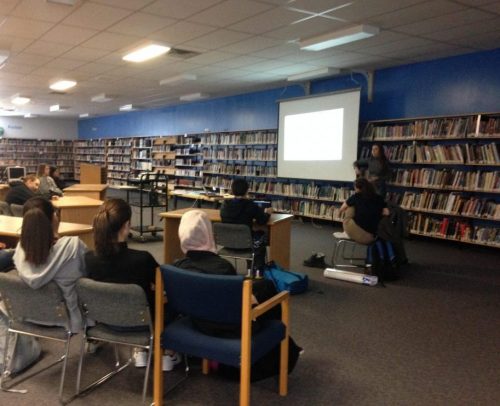
Paulina Marczak: Sounds really ambitious, but I’m sure you’ll get there. What advice would you give to young people considering their career path and who might be interested in science or any other field related to university?
Rachel Kuzmich: I mentioned that Conference2Classroom was born out of going to these conferences recently and not having the opportunity to engage. But it actually goes back further, so I’ve kind of ended up in a discipline, doing remote sensing, that I didn’t even know existed growing up.
Paulina Marczak: And for those of us who wanted more context, remote sensing would be analyzing land features using satellites, basically.
Rachel Kuzmich: Mostly satellites, and aerial photography, and other things like that. When I was a kid growing up, I had no idea this existed. Had I known this existed, maybe I would’ve had a more direct path into this discipline, and not taken the route that I took, although that was quite a fun journey as well.
So my advice to kids who want to learn more is read, ask questions, and take advantage of these kinds of opportunities. If you’ve heard about Conference2Classroom, and you’re a high school student, and you want your school to participate, mention it to your teacher, mention it to your parents. Help bring these experts to the classroom.
Paulina Marczak: Do you plan on doing collaborations in the future, maybe with other science outreach organizations. I know there’s Skype a Scientist, I’m sure there’s others out there.
Rachel Kuzmich: Not immediately, no, and maybe not at all. Right now the future collaborations I see are going to be with professional associations, ones like the Canadian Association of Geographers, who do host a series of conferences all across Canada. I think that these other science outreach organizations fill a different niche than the one were filling. So really were trying to do one thing, and trying to do one thing really well- which is providing a kind of matchmaking service between people going to conferences and these local classrooms, whereas things like Skype a Scientist provide a different service- and it’s a great service and its very complimentary and I’ve already provided the information for that organization to a couple of people who have gotten in touch with me wanting to get involved with Conference2Classroom but had no conference but still wanted to reach out to classrooms. So I think there is a lot of opportunities for these different organizations to cooperate, but maybe not necessarily collaborate.

Paulina Marczak: So right now it’s grassroots, it’s just starting up. Do you see this expanding over the next few years? What are your long-term visions for this?
Rachel Kuzmich: We are a new initiative, but we did facilitate our first event actually just a week ago. We had an expert that was attending a conference in Vancouver that we hooked up with a biology class in Vancouver. Really, we just want to get that solid foundation. Like I mentioned earlier we want to be able to do one thing and do it well. Eventually, we do want to expand and be able to service wider areas and reach these communities that may not have these same types of services, they may not be as easily accessible. So that’s really where we’re planning on growing, trying to cover as many classrooms as we can and mobilize as many experts as we can.
Paulina Marczak: And how are going to do that, considering that you still have your Ph.D. to finish?
Rachel Kuzmich: I think I have a really good opportunity as a Ph.D. student because I get to go to these conferences myself. So not only do I get to facilitate these kinds of activities for other people, but I actually get to participate in them and talk to my peers while imp at these conferences. My general impression of most people that I talk to in different science disciplines is that we all want to share our work and we just don’t have a pathway to do that. So my hope is that Conference2Classroom will provide that pathway and that other people will start to use our services.
Paulina Marczak: I wish you the best of luck in that, and definitely keep us updated at Go Geomatics. Maybe we’ll check in with you in a few months and see how the initiative has grown. So thank you for taking the time to answer my questions Rachel.
You can find Rachel also hosting Kingston GoGeomatics meetups every month, they have a variety of talks, drinks, it’s a great time. You can also find Conference2Classroom on Twitter, @C2C_Canada, they also have an Instagram, @C2C_Canada. If you’re listening to this, please note we also typed this out, so you can also see how it’s spelled in case you can’t find it.
So thanks Rachel, for taking the time to hang out with me in this interview. Wish you the best.
Rachel Kuzmich: Yeah, thanks so much, Paulina.
For additional information on conference2classroom, visit https://www.conference2classroom.ca/, their Twitter @c2c_canada, or their Instagram, c2c_canada.
Original interview transcript available on SoundCloud

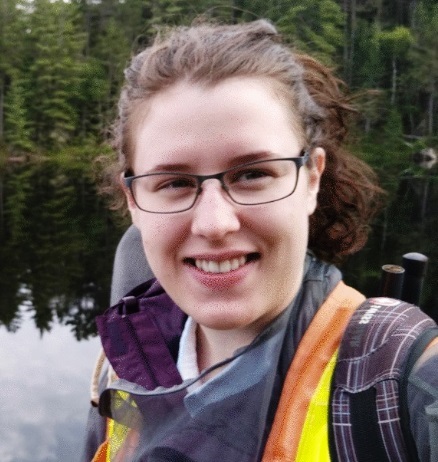
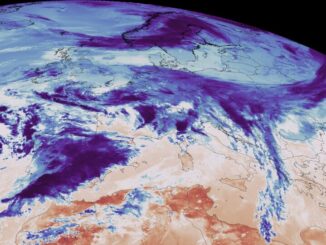
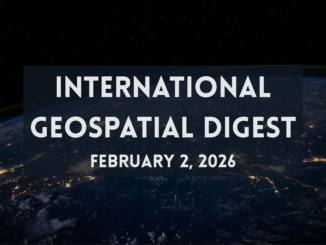
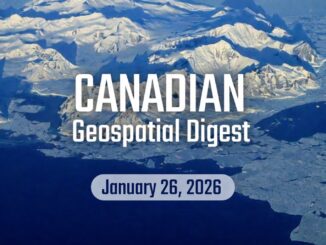
Be the first to comment